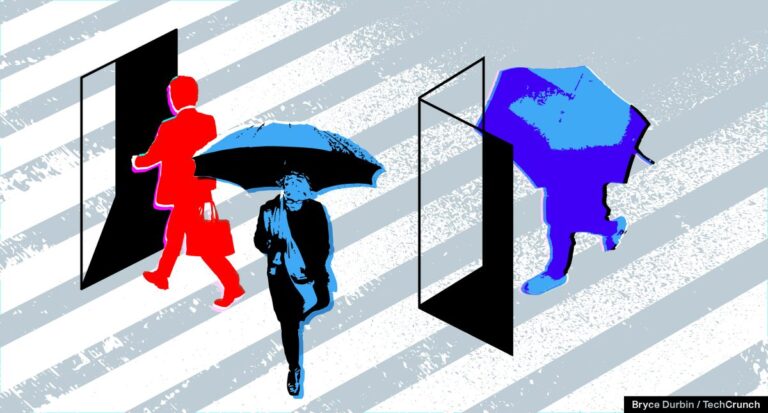Realize Music’s ‘Sing’ wants you to sing out loud by yourself in VR because it just feels good
People don’t sing as much as they used to, and Mike Wilson wants to change that. The former Devolver exec has of late been exploring how games can help with wellness, and his latest attempt is a VR app that you can, no joke, sing out loud with when you’re home alone. It’s not quite as crazy as it sounds.
Wilson told TechCrunch in an interview that the research he read for his previous gaming wellness startup, Deepwell (still going, by the way), helped him realize how weird it is that we don’t sing more often.
“It just occurred to me that this inherent fear we all have of being judged for our voices is no reason not to do this thing that we should all do,” he said. “Those times in the shower or the car when you can really belt it out, that’s when it’s really good for you. It’s part of what sets off the physiological benefits.”
He pointed to the great deal of research that suggests singing regularly is good for well-being, but “in our modern society, it’s not cool to raise your voice, so most of us just… don’t.”
Sing, the first product from his new company Realize Music, is an attempt to give people an excuse to sing at home, as loudly as they want, to over a million songs, replete with lyrics and visualizations. Aside from some positive visual feedback just for singing (or even humming) along, there’s no scoring, no sharing, no gamification beyond interactivity.

“We’re just leaning into the joy side. It’s a forced focus thing; you’re not thinking about bills or your boss or whatever. People that participate in their music have a much better experience than people who just kind of listen to it in passing,” Wilson explained.
Unlike other musical games like Rock Band or Just Dance, the focus here isn’t on the game, but more on completely engaging with the music itself. The library is expansive, so you can listen to your favorites rather than forcing yourself to listen to whatever handful of tracks Ubisoft or the trainer or DJ lined up.
The point, however, is still to pursue wellness — hence the subtitle of Sing: “For Your Self”. Wilson used yoga as an example of another activity that’s good for you, but one that many avoid for valid but addressable reasons: “People don’t do yoga because they aren’t a yoga person, or they don’t have the right clothes, or the right body or whatever.”
But, he pointed out, when yoga classes started being offered on YouTube and other media, millions of people signed up and happily did yoga from home. He’s hoping Sing can do something like that.
“We’re trying to remove any barriers that would put people back in a place of shame or judgment, even judging yourself. The vast majority of us just don’t dance and don’t sing our whole lives, and that is mind blowing when you think about it,” Wilson said.
Though VR may seem an odd first choice for such a project, he explained that one of the medium’s main draws is its immersion: “It’s good at making you forget where you are. Even if there are people around, you don’t care after 45 seconds. But most people do VR in private anyway — it’s not a very social activity.”
Sing is coming to the Meta Quest ecosystem first, but Wilson said the company is “definitely going to go to all the platforms we can,” including mobile, consoles and PC. The VR experience may be the most pure and focused one, but in the spirit of removing barriers, the company intends to make the game available as widely as possible.
The game, or platform (however you want to describe it), will cost $10 a month or $100 per year. That may be a hard sell for some, but it could well prove a no-brainer for others.
For those who aren’t convinced, Wilson says they should check back soon: The launch version is the most limited it will ever be. More music, more worlds, and more modes are forthcoming, but, he said, they had to launch at some point. Multiplayer — co-operative, like a choir — is also on the roadmap.
“There’s a lot of reasons why people are coming undone these days,” he said. “So that’s where I’ve tried to focus my efforts — in finding out how we can thrive in an increasingly isolated world.







